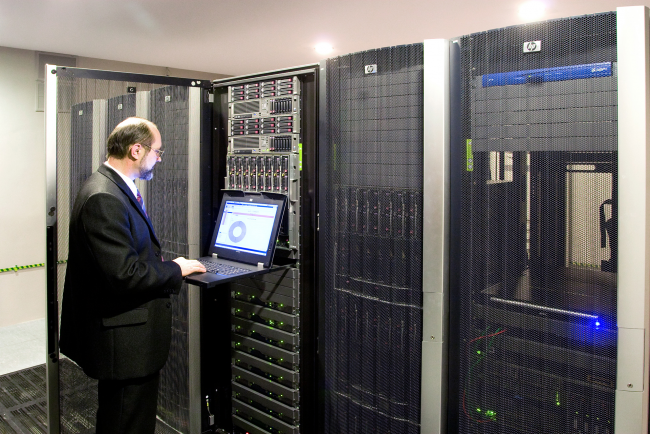There are a lot of discussions about state of Russian science and education system today.
The pessimists complaining about USSR lost advantages are more numerous. Russian universities have been facings difficult times and have been undergoing numerous transformations for the last 25 years. In spite of this “we (VyatSU) are still ahead of some capital education and science pillars and world technological leaders”, - Anton Zemtsov, director of VyatSU Institute of Mathematics and Information Systems and his colleagues believe.
Computers have been taught to hear, it's time to teach them to see
A lot of IT market leaders have already created voice assistants, like Siri (Apple), Bixby (Samsung), and Russian Yandex has launched its "Alice". Technologies have become being so perfect that they really serve humans. And direct confirmation of this is voice communication with gadgets when computers understand the meaning of utterance. The next step is to improve the so-called “machine vision”. The problems at this level are complicated. The solution of the problems of fast image processing and analysis can be found in interdisciplinary area and requires high competencies in various fields of knowledge: from mathematics to artificial intelligence.
"The creation and improvement of image processing algorithms based on multidimensional Markov chain (it is unlikely to be understood by non-specialists) has been developing for 10 years by VyatSU Institute of Mathematics and Information Systems.
We have learned to process noisy images better than any other researchers in Russia; and our results are comparable with the results of the world's leading laboratories," Dmitry Prozorov, professor of VyatSU Department of Radioelectronic Facilities says. "Removing noise, isolating the contours of objects, compressing images with an optimal ratio of losses and compression - these tasks have already been mostly solved. And improvement in performance due to development of new algorithms brings us closer to computer vision itself. For example, now video analytics systems in street cameras are automatically able to detect suspicious situations, like smoke or left things. Human evaluation is still necessary here. Video analyzer errors are possible when the image is heavily distorted, at nights or during some lighting changes. Our algorithms can reduce such errors, provide more accurate data for further intelligent processing and even decision making. Now we are focused on improving the performance of our algorithms to ensure processing of a high resolution video stream with a frequency of up to 60 frames per second".
"Leaders of intelligent unmanned systems market are interested in VyatSU developments. Now we are negotiating with them, - Anton Zemtsov adds.
Objective assessment
Now there are a lot of sources of information. People actively discuss everything in social networks and blogs. Individual assessments are often very subjective, whereas some sort of averaged estimation by points of view can be obtained only through a costly sociological research.
VyatSU Department of Fundamental Informatics and Applied Mathematics has developed approaches to implementation of automated processing of huge textual information for their semantic assessment. This allows to study consumer market better, as well as, for example, to assess the attitude of society to various events, government initiatives, etc.
"It was necessary to solve many problems to create a computer system capable of answering such questions. At first, we solved a problem of evaluating text tonality. It is possible to assess whether the author of the text is negative or positive about a particular issue based on used vocabulary, - Eugeny Kotelnikov, Candidate of Engineering Sciences, Head of VyatSU Department of Fundamental Computer Science and Applied Mathematics says. - The next step was the development of search algorithms suitable for analysis meaningful texts including those in social networks".
Now Eugeny Kotelnikov and his colleagues plan to integrate audio recognition and speech recognition into the system. In the future such a system will become a powerful tool for market, sociological and political research. In addition to speed and volume of processed information, its obvious advantage is that it does not influence the opinions of the respondents, unlike traditional surveys.
Communication and networks
Studies of VyatSU scientists in the field of communication systems also deserve special attention. In particular the developed protocol for multi-step decentralized wireless networks is unique.
"The Americans has just begun working in this direction, and our colleagues at the Department of Radio-electronic Facilities have already got a solution. According to this protocol we can already communicate on our mobile phones within a common network without base stations of any telecom operators,"- Anton Zemtsov says proudly. - In such networks user terminals transmit information by a chain. This allows expanding significantly both the coverage area and total amount of information transmitted".
"As a result stable communication can be ensured, for example, in places of mass congestion of people, - Professor Prozorov explains. - Also, this protocol can be used where there is no cellular communication. For example, on pipelines - in the system of technical sensors of transport infrastructure. Another option - in “smart home” systems. Of course this is a classic dual-use technology. Military services are also actively interested since its main advantage is a stable connection not depending on any infrastructure".

